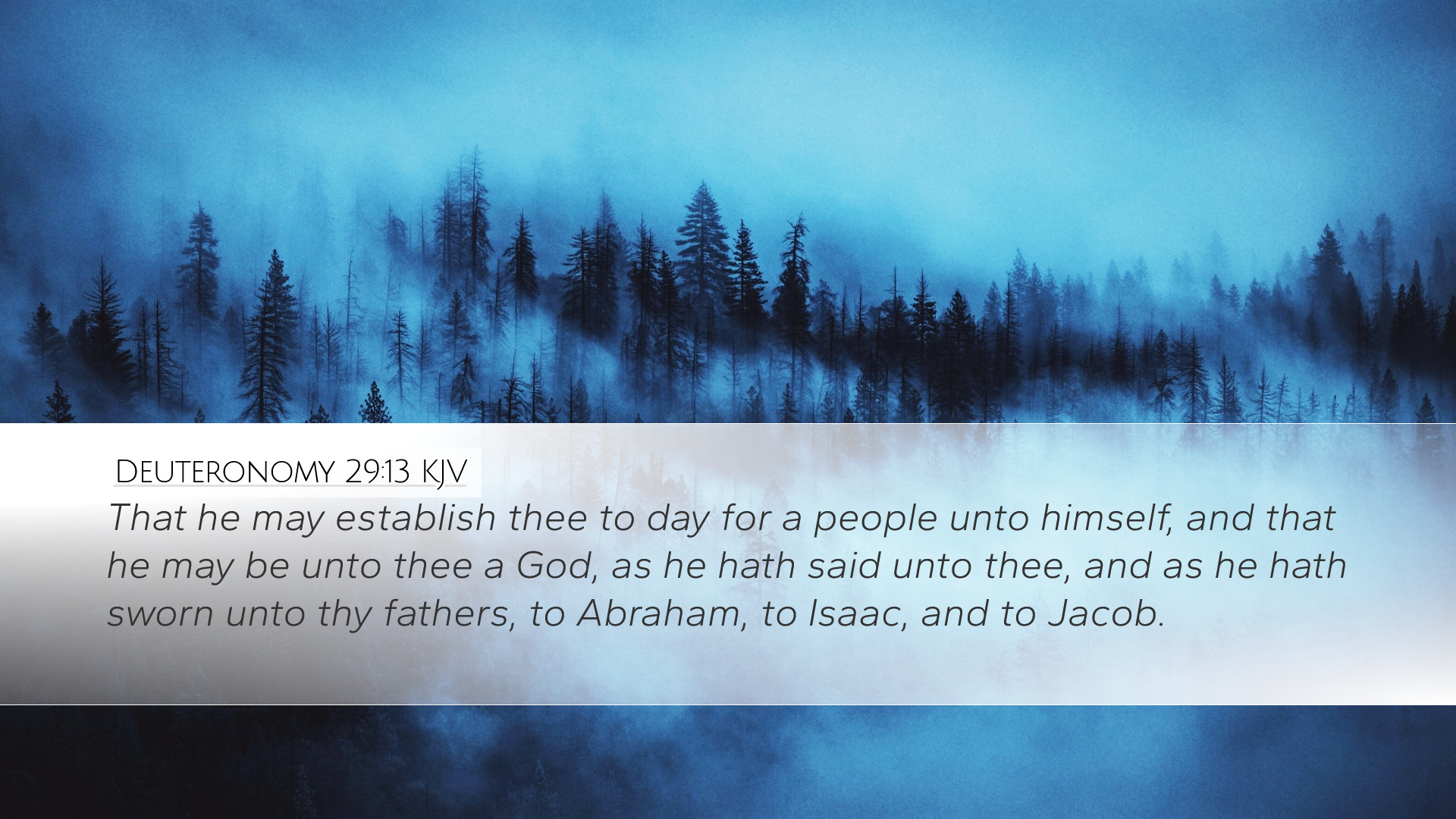Commentary on Deuteronomy 29:13
Verse: Deuteronomy 29:13 - "That he may establish you today as His people, and that He may be your God, just as He has spoken to you, and just as He swore to your fathers, to Abraham, Isaac, and Jacob."
Contextual Analysis
This verse falls within the broader narrative of Moses' farewell address to the Israelites as they are about to enter the Promised Land. This moment is pivotal, not only in the life of the nation but also in the unfolding narrative of redemption. Moses reiterates God's covenantal relationship with Israel, emphasizing the responsibility of the people to respond to God’s grace.
The Covenant and Its Implications
Establishment of a Covenant People: The statement "that he may establish you today as His people" underscores the notion of identity. God's intention is not merely to lead Israel into a geographic territory but to create a distinct community set apart for Himself. Matthew Henry notes that this establishment requires both divine initiative and human response.
Divine Ownership: The second part of the verse, "...and that He may be your God," reiterates the exclusivity of Israel's relationship with God. This notion reinforces a key theme in the Old Testament—the idea of fidelity in worship and obedience to God's commandments, which Adam Clarke elaborates upon, emphasizing the blessings tied to covenant faithfulness.
Theological Significance
This verse presents profound theological themes relevant for pastors and theologians: God's initiative in covenant, the establishment of community, and the assurance of His continued presence and faithfulness.
- Covenant Theology: The covenant articulated here recalls foundational biblical covenants with Abraham, Isaac, and Jacob, amplifying the continuity of God's redemptive work throughout scriptural history.
- Human Responsibility: The establishment of Israel as God's people implies a reciprocal obligation from the people to reflect God’s character and fulfill their covenant vows, a theme echoed throughout Biblical texts.
- Divine Assurance: The affirmation "just as He has spoken to you" serves not only to remind the Israelites of God's past promises but also acts as a guarantee for their future; a theme that resonates deeply in the New Testament context of faith in Christ.
Practical Implications for the Believer
In drawing insights from this verse, believers can find direction for their spiritual lives today:
- Identity in Christ: Just as Israel was established as God's people, Christians today are to find their identity rooted in their relationship with Christ (cf. 1 Peter 2:9).
- Faithfulness to God: The call to reflect fidelity in our walk with the Lord remains crucial; embracing both the blessings and responsibilities of our covenant with God.
- Assurance of His Presence: The unwavering commitment of God to His people instills confidence amid life's uncertainties, reaffirming that He is always present and actively working for our good.
Conclusion
In Deuteronomy 29:13, we encounter a rich tapestry of divine promise and human obligation. This fundamental truth—God's desire to establish a people for Himself—continues to resonate throughout biblical history and into contemporary faith experience. For pastors, students, theologians, and scholars, this verse serves as a powerful reminder of the covenantal nature of God's relationship with humanity and the transformative impact that such a relationship can yield when faithfully embraced.


